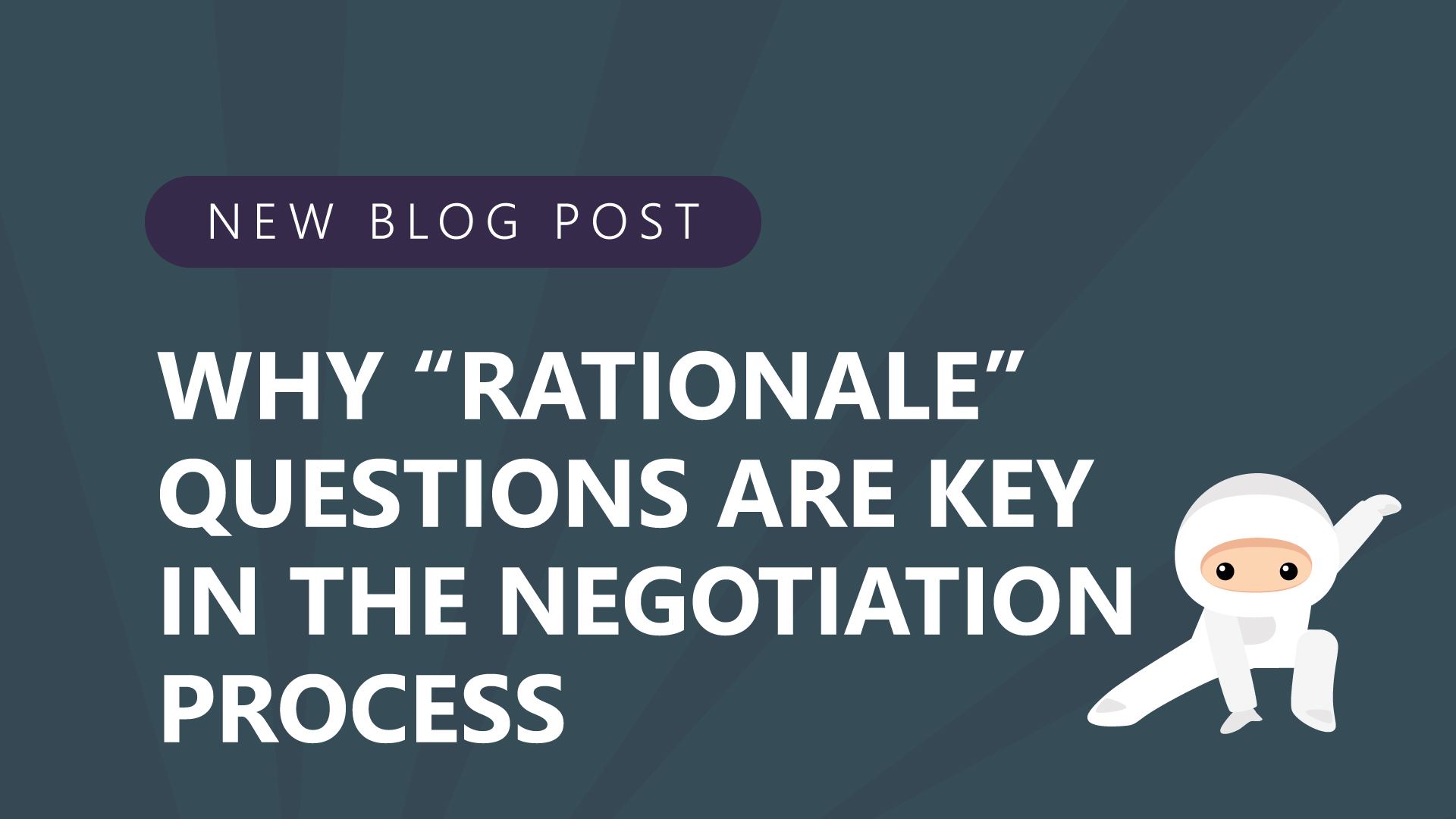According to Deb Calvert, the purpose of a rationale question is to understand the decision that has been made and what has gotten you to the point you’re at in a negotiation. You need to know what the criteria will be for the ultimate decision. If you can get some of this information and insight beforehand, it’s helpful. These are definitely great questions in the midst of the negotiation as well. What will be your criteria? Who’s involved? What is the budget?
You’re not only gathering information to qualify a buyer; you’re also asking these questions in a way to cause your buyer to reflect. It helps remind them of the key criteria that are important in the deal. You can ask things like, “When it comes time to make a final decision, what will your rationale be when choosing a vendor?” Then you can follow it with, “Why are those in particular important to you?” You then start to understand the “why” behind the decision-making process.
A deep dive into rationale questions
I asked Deb to take it a step further and help nail down some of the best rationale-based questions. How can a seller get the information they need to move a deal forward? Deb points out that a good rationale-type question is usually open-ended or consists of a command statement. They shouldn’t be close-ended. If they are, you may be making assumptions that could be dangerous. You’ll also inhibit the amount of information you’ll get back. So you want to be in info-gathering mode.
Deb also notes that she will not use the word “why” in these questions. The word “why” can be dangerous and lead people to become defensive.
You want to say something like, “Help me understand the process that got you to this point now that you are down to the final decision with a couple of vendors?” instead of “Why did you pick between us and them to get here?” It reminds them why they like you. It will also bring you alongside them in lockstep with the decision. You’ll get insight into what matters to them and where they are in the process.
How rationale questions help you with the budget conversation
What about questions about budget? When procurement brings up price or budget, sellers need to be able to ask eloquently and comfortably what the actual budget is. Instead of saying, “What is your budget?” you should say something like, “How far apart are we?” or “What would it take to get this done right now?” You’re asking something contextual.
What about who’s involved? You need to know who else is involved in the decision, but you also want to be careful not to offend anyone. You don’t want to suggest that they don’t have the autonomy to make the deal happen on their own. So to get an answer, you could say, “In addition to you, who else will participate and influence the decision?”
How to manage the budget conversation
What if you are completely misaligned on pricing? What do you do when the number procurement gives you is too far away from your pricing?
Deb says to let your natural reaction come through in a way that isn’t defensive. You can share what your pricing is and clarify what their budget is. You can point out that it aligns with something else in the marketplace and make sure you’re not misunderstanding what they’re looking for. This gives them the chance to recant or do the catch-up they need to do to get a reality check.
I prefer to be blunt and tell them straight-up that if that’s their budget, they won’t get what they want. Someone might beat out our pricing on the front-end, but I guarantee that three months in, they’ll get a price change. They will find some way to claw their money back. I like to tell them, “Before you make a decision, please evaluate where you need to be.”
When they ask for you to make a price concession, you have to take something out of the deal. Something has to come out for the price to be dropped.
What other types of questions are helpful in the negotiation process? We walk through Deb Calvert’s “DISCOVER Framework” in episode #223 of the Negotiations Ninja podcast. If you want to learn how to ask better questions—don’t miss it.
Speaking of questions, do you have a question about a negotiation? Text me at 587-315-5948 for negotiation advice!

